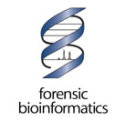Useful Links
Exploring Bias in Forensic Science DNA Profiling: A TEDX Dayton presnetation given by Dr. Dan Krane.
David Paoletti. Inferring the Number of Contributors to Mixed DNA
Profiles. On-line mixture calculation tool.
STRbase - Short Tandem Repeat Internet Database: Large repository of information
on DNA testing, including information on STR sequences, testing, population data, validation studies, presentations, and more.
National Legal Aid and Defender Association (NLADA) Defender Resources:
Repository of court opinions, presentations, declarations, and other useful information for attorneys and experts.
The American Bar Association's Standards on DNA
Evidence. August 2006.
Forensic Fraud: This is an archive of cases involving alleged, admitted,
and or demonstrable forensic fraud. That is, it is an archive of cases where forensic and police experts have provided sworn testimony or reports to the court that contain deceptive or misleading
findings, opinions, or conclusions, deliberately offered in order to secure an unfair or unlawful gain.
Scientific.org : an on-line journal about STR testing.
Dr. Larry Mueller provides provides consulting services and testimony. His
homepage contains several forensic DNA resources.
Technical
Associates, Inc.: Marc Taylor's DNA testing laboratory in Ventura, CA. They also provide
consulation services.
Forensic
Analytical Sciences, Inc.: Hayward, CA laboratory that offers comprehensive forensic
testing services. Keith Inman is a lead scientist there.
National Criminal Justice Reference Service: Forensic Science resources. Includes
history, current legislation, and publications. The facts and figures page is particularly useful.
Bioinformatics Resources: collection of links to many web sites relating to
bioinformatics, including many sites dealing with DNA.
ForensicHUB.com: A free online community for forensic professionals and students
of all disciplines to share knowledge and experience.
A Forensic Science Guide to Crime Scene Investigation: An online guide to crime scene processing, including evidence collection.
Prosecution Resources
The American Prosecutors Research Institute's DNA Forensics Program: APRI furnishes written materials on scientific advancements, case law, and legislation; consultation and
advice on methods for effectively presenting DNA in court; and national training conferences taught by scientific and legal experts in their fields. Web site includes the publications "DNA Evidence
Policy Considerations for the Prosecutor" and "Forensic DNA Fundamentals for the Prosecutor" for download.
The Silent Witness:
a newsletter published by the APRI to assist prosecutors with various aspects of DNA evidence.
National Criminal Justice Reference Service (NCJRS): repository of publications covering forensic DNA
analysis.
DenverDA.org: Denver District Attorney Mitch Morrissey's web page. Includes a
large collection of DNA court rulings and case law.
Understanding DNA Evidence: A Guide for Victim Service Providers: NIJ
publication. May 2001.
Using DNA to Solve Cold Cases: NIJ special report. October
2002.
Postconviction DNA Testing: Recommendations for Handling Requests: NIJ
publication. September 1999.
What Every Law Enforcement Officer Should Know About DNA Evidence: NIJ
publication. September 1999.
FBI Handbook of Forensic Services: The purpose of the Handbook of Forensic
Services is to provide guidance and procedures for safe and efficient methods of collecting, preserving, packaging, and shipping evidence and to describe the forensic examinations performed by the
FBI's Laboratory Division and Investigative Technology Division.
FBI CODIS Homepage: The FBI Laboratory's Combined DNA Index System
(CODIS).
NIJ DNA Backlog Reduction Program: case studies of preventable crimes.


